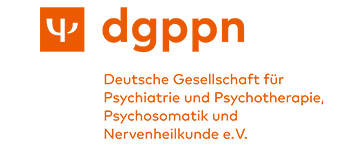Please note that health information can only support the conversation with a psychotherapist or physician: It should never be a substitute for it!
What is social phobia?
People with social phobia fear that others will perceive them as strange, embarrassing or even laughable. Their behaviour (e.g. how they walk, eat or talk) or visible signs of their fear (e.g. blushing, sweating or trembling) are embarrassing to them.
This anxiety is not always as strong: It tends to refer to situations in which one is observed or evaluated – such as tests or when speaking or eating in public. However, it can also occur when one is dealing directly with people – such as speaking to strangers or people of the opposite sex or in dealing with people in authority. People with social phobia avoid such situations wherever possible, or only endure them with strong fear.
Frequently, physical anxiety reactions occur (e.g. heart palpitations, nausea, diarrhoea or muscular tension). From this, a panic attack can develop. People with social phobia often have difficulties finding a partner or successfully pursuing a career, even when they have the right personal qualification.
How frequent are social phobias?
Social phobia is one of the most frequent mental illnesses. Seven to 12 out of 100 people suffer from social phobia at least once in their lives.
Women are one and a half times more frequently affected than men. The illness usually arises in adolescence.
Are there different forms or progressions?
Many people with social phobia suffer from a further mental illness such as depression, other anxiety disorders, somatoform disorders or dependency disorders. Usually, the social phobia occurs first. If it remains untreated, the risk of developing depression or alcohol abuse increases.
How does social phobia emerge?
- Genetic predispositions (heredity)
- Personality characteristics (e.g. shyness and fear of new, unfamiliar situations)
- certain thinking styles (e.g. excessive expectations of yourself, low self-esteem, disaster fantasies about the impact of your own behavior)
- Focus on yourself and your own physical symptoms (e.g. blushing), thereby worsening of the physical symptoms
- Parenting style of own parents with little emotion but controlling and overprotective
- Unpleasant experiences with other people (e.g. being laughed at by others, humiliated or excluded)
- Burdensome life events (e.g. the death of a loved one or a separation)
How do you find out if you have social phobia?
People with social phobia can get professional help from a specialist physician or psychotherapist. In a first discussion, he will ask about individual burdens, the general state of health and physical illnesses. Questionnaires help him to clarify the severity of the illness. As social phobias are frequently accompanied by other mental illnesses, this is also examined.
How are social phobias treated?
Who ever receives treatment for social phobia disorders has good chances of being cured. The following treatments are possible:
In deciding for one of the treatments, it is important to consider individual preferences. If one of the two treatments did not help, it is recommended to try the other. A combination of cognitive behavioral therapy and antidepressants is also possible.
Among the different types of psychotherapy cognitive behavioral therapy has proven to be particularly effective at social phobia. In this therapy, thought patterns are called into question and worked on, and the patient is supported in actively confronting his anxiety.
For psychodynamic therapy there are fewer studies. But if someone prefers a psychodynamic therapy, cognitive behavioral therapy was not helpful or is not available, psychodynamic therapy may also be offered.
Some doctors initially prescribe sedatives (so-called benzodiazepines). Benzodiazepines reduce fears very quickly, but can be addictive and are therefore not recommended. Benzodiazepines should only be prescribed in exceptional cases (e.g. severe heart diseases, when antidepressants are not suitable or in case of suicidal tendencies) and only for a short time.
What can friends and family do?
In most cases, social phobia has a limiting effect on the close environment. For those on the outside, moreover, it is difficult to judge whether the affected person is just shy or has a social phobia. If, however, signs are visible, family members and friends should encourage the sufferer to seek professional help.
Furthermore, it is important that family members do not limit themselves too much. If the social phobia of a partner or friend becomes a constant burden, self-help groups, advice centres, physicians and psychotherapists can also provide them with advice and support.



![Information [br] [m]Social phobia[/m]](/cache/com_pagebuilder/c97ffd6b296148e82961056377732c77.jpg)



